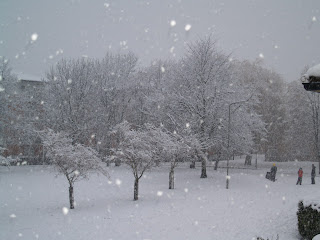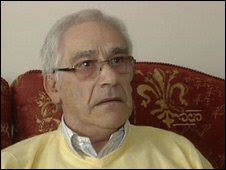There was rightly uproar over the recent
Guardian story about the overuse of feeding tubes for elderly dementia sufferers in care homes. (Read the story
here.)
But I think some of the comments were reasonable as well. It's all very well being in uproar but unless you have tried looking after an elderly person you might not understand how difficult it is to provide the level of care you would like to. I help to look after an elderly person. Elderly people do not completely lose their personalities. Some are more difficult to look after than others.
That said, or perhaps because of that, elderly people should be afforded every care they need to enable them to live as well as they can, to get as much enjoyment from life as possible. As a society, we are nowhere near set-up at the moment to provide that level of care.
The solution - practically a revolution - is for society as a whole to face a nunber of facts and reshape its thinking on age.
1.
We need to stop being embarrassed about ageing. We are all of us getting older all the time, we don't suddenly wake up one day and find ourselves 'an older person', a subspecies of human. We need to act against ageism, which affects all ages, and realise that as individuals we will, all of us, if all goes well, be 'all ages'.
Enough of 20-year-olds moaning about how old they are getting! And 30-year-olds thinking they invented middle age. When we can face up to ageing, perhaps we can start having respect for the truly 'elderly'.
2.
We need to spend vastly more money on providing care than we do now. Take staffing levels in care homes: they must be increased, and training improved. At the moment, too much staffing is contracted out - in order for councils to 'save money' - to companies who cut corners by paying their staff badly, and not employing enough of them.
In Barnet, daycare workers working in centres taken over by Fremantle had their pay and holidays slashed. Many experienced workers could not continue working in the centres and left, to be replaced by badly paid agency workers. Fremantle expects to make money from their contract. The council expects to save money. How can this be achieved? Shockingly, staff cuts - either in number or quality - are routinely seen as the solution to this type of problem.
3.
We need to recognise caring. So many people - I don't know the percentage but it must be massive - will spend part of their lives caring for older people or being cared for themselves, that it is astonishing there is no recognition of it in popular culture, discourse, political campaigning...
So many people struggling with this unexpected - why unexpected? Because we don't talk about it - life-event, finding their way, like new parents struggling to care for a new infant. Yet there is very little support for carers or the cared-for.
I would include in this the issue of young carers. How can it be right that there are so many - the 2001 census says 175,000 - young people caring for relatives? It is one thing, allowing young people to show their 'care' for a relative, quite another to expect them to do most of the caring.
4.
We need to recognise old people. Many older people want to live at home, that doesn't mean they want to be isolated and at times lonely. (For example,
this shouldn't be possible.) Society needs to include older people more in everything it does, and afford them their own outlets for social activity. One of the great benefits that the sheltered housing wardens, that we have been battling to save, can give is to help create a social space for residents in sheltered housing schemes.
Old people need jobs, if they can do them; they need to be seen in the media. It is simply scandalous the emphasis placed on employing pretty young women in newscasting, TV presenting, etcetera, in preference to pretty, average looking or downright ugly older women, to take one very visible if somewhat frivolous example.
Anyway, I must go now, as I am being called by someone who wants her supper. I shall try to serve it with a smile.






















